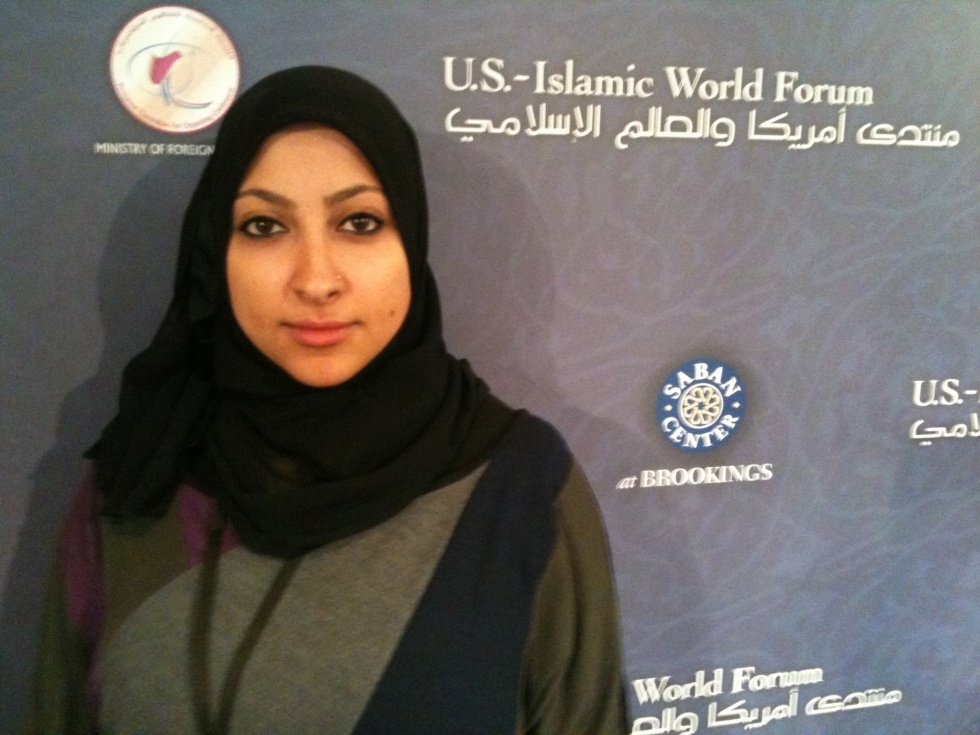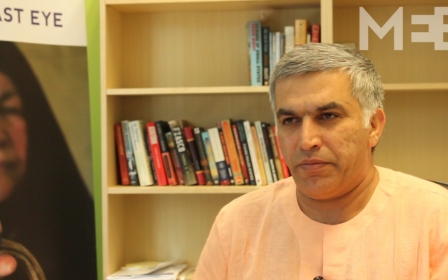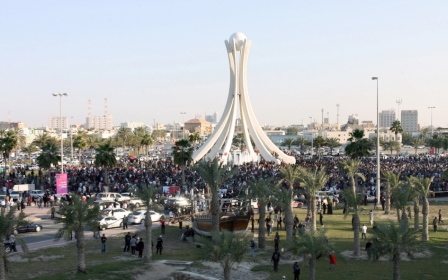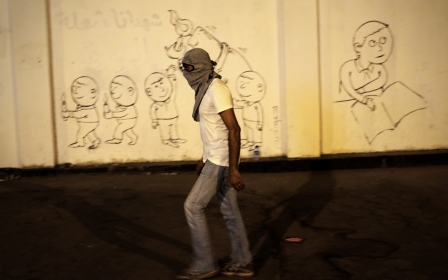Prominent Bahraini activist detained on route to visiting her jailed father

A leading Bahraini human rights activist has been refused entry and detained on arrival in the Gulf State early on Saturday.
Maryam Alkhawaja, co-director of the Gulf Centre for Human Rights, has not been heard from since announcing a hunger strike after being detained by Bahraini authorities at the airport in Manama.
“I’m denied entry. I’m starting a water-only hunger strike,” she said on Twitter. “I won’t voluntarily leave. My only demand is to be let into my country.”
Alkhawaja reports that she is now "officially under arrest on unknown charges", and will be brought before a judge on Sunday.
Alkhawaja was reportedly surrounded by police women, security forces and a cameraman at the airport when she arrived, according to her mother Khadija al-Mousawi. She then, Mousawi said, had her Danish passport confiscated and authorities “informed her of the revocation of her Bahraini nationality.”
Alkhawaja, who lives in exile, travelled to Bahrain with the hope of visiting her father Abdulhadi, another leading rights activist in the tiny Gulf kingdom. Abdulhadi Alkhawaja is currently on hunger strike in protest at his life imprisonment for “organising and managing a terrorist organisation.”
He maintains that he was taking part in legitimate, although unauthorised, protests against the monarchy, which exploded in February 2011 and have carried on since.
Prior to flying to Manama, Maryam Alkhawaja told MEE her father’s health was swiftly deteriorating as a result of his hunger strike and that was the reason for her visiting Bahrain.
“Doctors have told us that my father has no more than a few days to live. His blood sugar levels are dangerously low and he is at high risk of suffering a heart attack or slipping into a coma,” she said. “He will not stop his protest though, it is freedom or death. He should not be in prison.”
This is the latest in a string of hunger strikes by Abdulhadi Alkhawaja. In 2012 he refused food for 110 days, losing a significant amount of weight that saw him admitted to hospital for emergency treatment - he claims that authorities drugged him and force fed him against his will, bringing an end to his hunger strike.
Amnesty International has released an urgent action appeal calling for the “immediate and unconditional” release of Alkhawaja. The rights group also urged Bahraini authorities to “order an impartial investigation into Abdulhadi Alkhawaja’s allegations of torture and other ill-treatment”.
The government ordered Bahrain Independent Commission of Inquiry (BICI) found that Alkhawaja had been subjected to prolonged torture while in custody during 2011. No officers, however, have been prosecuted for his mistreatment.
Bahraini authorities state that the protest movement is violent and backed with weapons by Iran. No evidence has been presented to establish links between the opposition and Iran.
The Persian Gulf Kingdom of Bahrain has been in the grip of an uprising since hundreds of thousands of people, mostly members of the majority Shiite community, took to the streets in February 2011. Three days after demonstrations began, government forces broke up protest camps with teargas, birdshot and batons that left at least two dead and hundreds injured.
Since then activists say around 100 protesters have died in the unrest, although the government disputes these figures and says at least 14 police officers have been killed in attacks on their forces. A national dialogue process between opposition representatives and the government has been stalled since January, due to sharp differences of opinion over the uprising and a failure to agree on a format and agenda for the talks.
Bahraini authorities were unavailable for comment on Saturday regarding both Maryam Alkhawaja’s reported detention and her father’s latest hunger strike.
New MEE newsletter: Jerusalem Dispatch
Sign up to get the latest insights and analysis on Israel-Palestine, alongside Turkey Unpacked and other MEE newsletters
Middle East Eye delivers independent and unrivalled coverage and analysis of the Middle East, North Africa and beyond. To learn more about republishing this content and the associated fees, please fill out this form. More about MEE can be found here.




